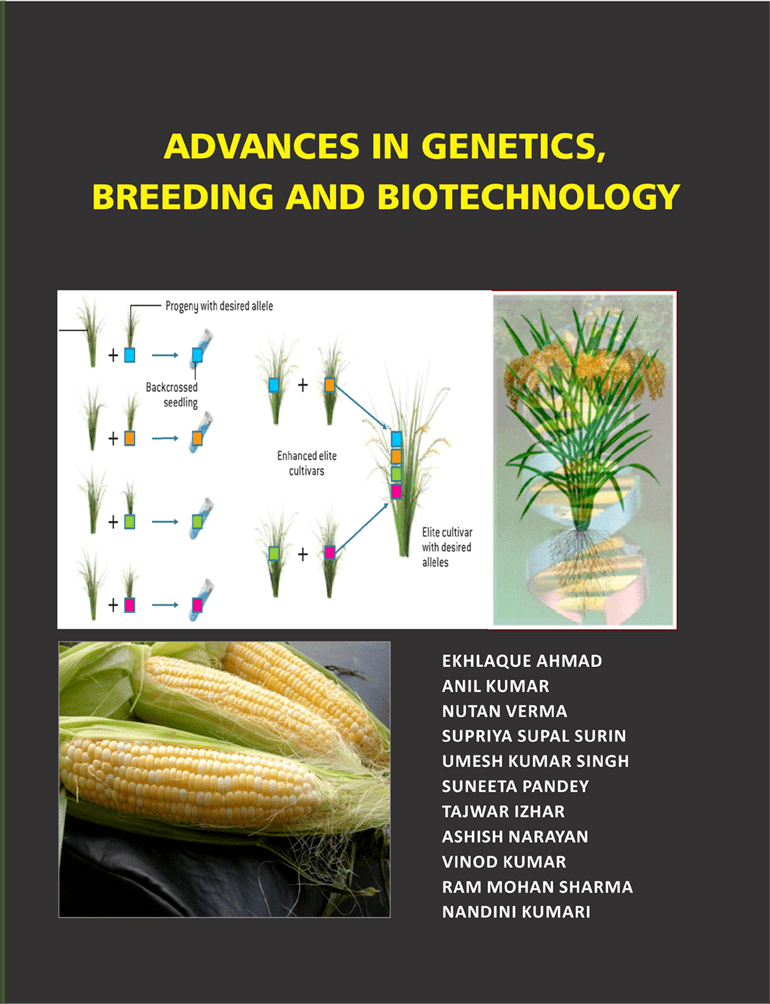
-
ADVANCES IN GENETICS, BREEDING AND BIOTECHNOLOGY
Editor: Dr. Ekhlaque Ahmad, Dr. Anil Kumar,Dr. Nutan Verma, Dr. Supriya Supal Surin, Dr. Umesh Kumar Singh, Dr. Suneeta Pandey, Dr.Tajwar Izhar, Dr. Ashish Narayan, Mr. Vinod Kumar, Dr. Ram Mohan Sharma, Dr. Nandini Kumari
Edition: 2021
ISBN: 978-81-925878-6-7
Publisher: PPD
Length: 157 pages.
Language Note: English
Summary:
Population levels are expanding fast (UNDP, 2017) driving the global demand at
enhanced level as well as pressurizing the land due to urbanisation (Satterthwaite et
al. 2010; UNDP, 2018). Therefore, feeding the growing population is becoming an
immense task as there is already a huge gap between food production and population
size under the same cultivable land. Fundamentally, conventional plant breeding is a
very time consuming process that generally takes 10 to 12 years for the development
and release of new varieties in several crops. To develop genetically uniform and
stable genotypes selected plant should be homozygous in nature for which at least 6 to
8 generation of selfing is necessary. Thus it requires relatively long duration to develop
new varieties, hence plant breeders should implement new technologies and make
attempt to reduce the breeding cycle of crops in order to make the varietal
development process faster so that it can cope up with the unpredictable changes.in
the environment, climate or markets assuming that the performance of the new
released varieties is not compromised by utilizing technologies to make breeding
faster. Several non-molecular as well as molecular approaches have been developed
to accelerate the breeding process such as marker-assisted selection, genomic
selection, rapid generation advancement, shuttle breeding, double haploidy, speed
breeding, etc. and are briefly discussed in this manuscript.Number Of Quantity: